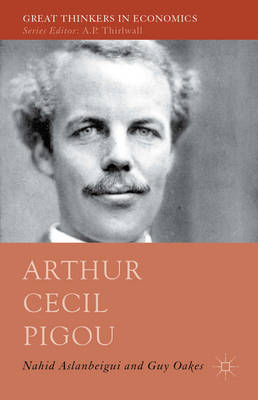Great Thinkers in Economics
1 total work
The British economist Arthur Cecil Pigou (1877-1959) was a major voice in economic theory during the first half of the twentieth century. After succeeding his teacher, Alfred Marshall, as the Cambridge Professor of Political Economy at the improbable age of thirty, he reconceptualized economics as a theory of economic welfare and a logic of economic policy analysis. In his time, the muse of history did not smile on this project. The fundamentals of Pigou's thinking were attacked by economists regarded as more innovative-Piero Sraffa, Lionel Robbins, John Maynard Keynes, and Ronald Coase among them. Misconceptions of his work abound.
This book attempts to demystify Pigou's life and work by reading his vast oeuvre as he intended it to be understood: as a pragmatic and historicist theory of policy analysis tied to changes in the British polity and economy.
